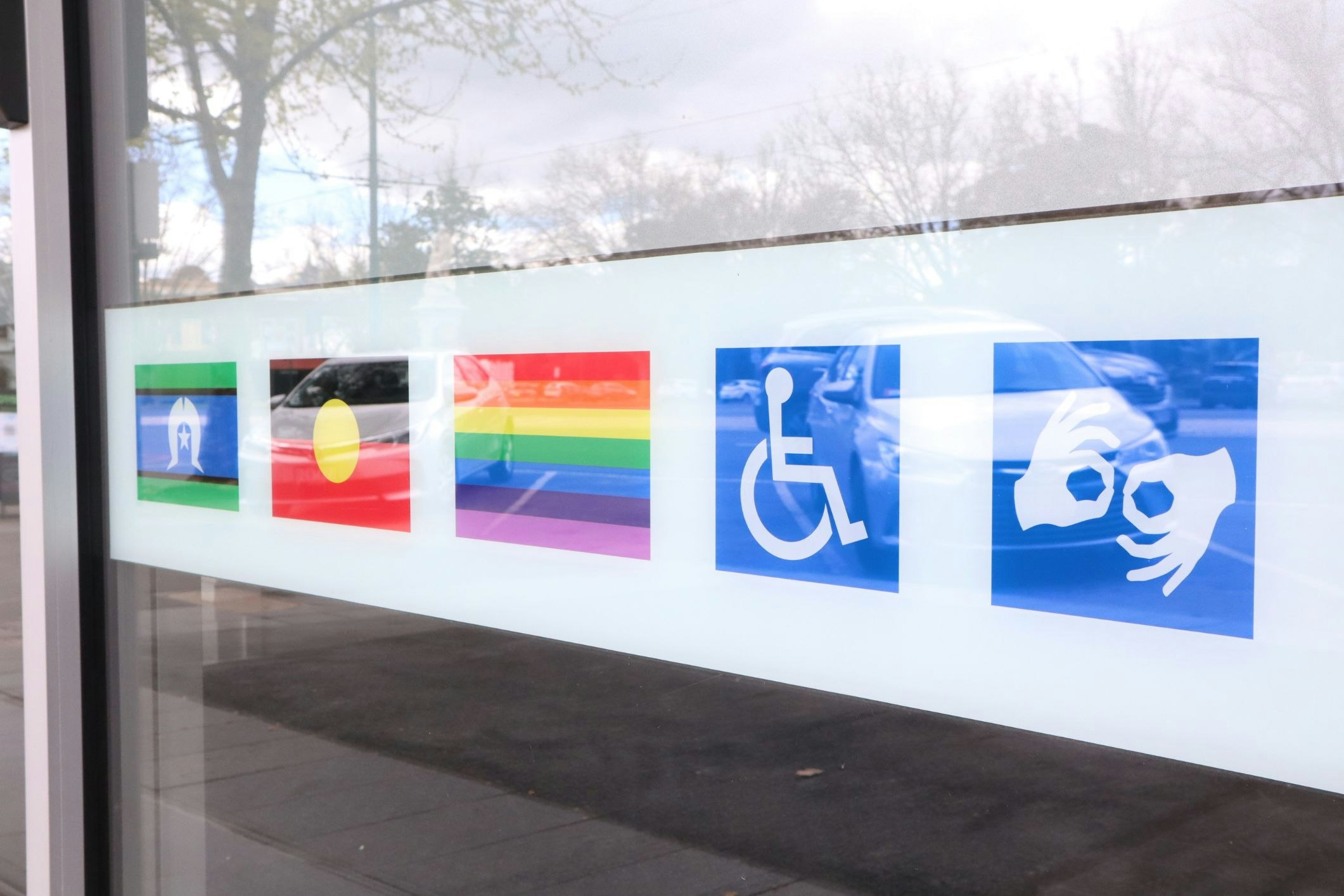Critical Issues in Disability Support and Services

Across Australia and the United States, significant developments are unfolding that profoundly impact individuals living with disabilities and their advocates. From widespread celebrations of intersectional inclusion during Pride Month to critical policy debates concerning healthcare funding and the launch of vital health resources, the landscape for disability rights and well-being is dynamic and evolving.
In Australia, June marks a vibrant celebration of Intersectional Pride Month, with events across capital cities explicitly welcoming and honouring LGBTQIA+ people living with disability. This movement emphasizes "intersectional inclusion," ensuring participation through wheelchair-accessible venues, Auslan-interpreted performances, sensory-friendly spaces, and online options. Sydney's Pride Month Festival, themed 'Love, Respect, Empower,' featured over 150 events in June, focusing on community connection and accessibility, with many held at wheelchair-accessible locations. Beyond June, the Disability Pride Sydney Festival 2025, set for July 26, will be a free, disabled-led event at Sydney Town Hall, themed 'No Shame. No Apologies,' showcasing live music, speakers like Elly-May Barnes and Deb Roach, workshops, and a makers' market. It promises comprehensive accessibility measures, including Auslan interpretation and sensory rest spaces.
Melbourne's Pride celebrations are centered at the Victorian Pride Centre, hosting a month-long program of accessible LGBTQIA+ cultural events, including film screenings, art workshops, and inclusive social gatherings. The centre is fully wheelchair-accessible with ramps, lifts, and a hearing loop. Additionally, Melbourne will host a hybrid Disability Pride Celebration on July 18 at Kensington Town Hall and via Zoom, organized by Disability Resources Centre and Belong. This casual event encourages queer folks with disabilities and their allies to share stories at an open mic, engage in badge-making, and utilize a quiet sensory area, fostering connection and visibility with its theme 'light up your life.'
Brisbane's Pride Month highlight is the 64th Annual Queens Ball on June 28, the world's longest-running queer event. This formal gala at Brisbane City Hall strives for inclusivity with Auslan interpretation and wheelchair accessibility, raising funds for the local LGBTIQ+ community. Other smaller, inclusive meet-ups like pride picnics and trivia nights are also held. Perth, while holding its main PrideFEST in November, uses June for grassroots inclusion efforts. Last year's inaugural Disability Pride Festival Perth, a 'by disabled folks, for disabled folks' event, exemplified this commitment, offering accessible performances and live-streamed sessions. Pride WA is actively seeking community input to shape an even more inclusive PrideFEST 2025.
Adelaide's second annual SA Pride Gala on June 27 commemorated 50 years since South Australia decriminalized homosexuality, held at the fully accessible Adelaide Festival Centre. In parallel, Our Voice SA, a self-advocacy group for people with intellectual disability, hosted a Disability Pride Month Dinner on June 27, an intimate, inclusive gathering where they announced their inaugural Disability Pride Awards. In Hobart, the 'Tall Poppy' Pride Movie Night on June 20 welcomed all 'small wheels' (skaters, roller-skaters, wheelchair users) to an Auslan-interpreted, accessible screening of a queer Aussie skateboarder's story, fostering community spirit. Darwin's Pride Festival, celebrating its 40th anniversary from June 4-15, featured an inclusive program including a queer arts exhibition, an accessible outdoor film festival, and the city's first-ever Queer Youth Prom, designed as a safe and celebratory space for young LGBTQIA+ people with disability. Finally, Canberra concluded Pride Month on June 28 with a 'Finish Pride Month' Concert at Llewellyn Hall, an accessible venue featuring LGBTQIA+ musicians and choirs, embodying inclusion through the arts.
While celebrations for inclusion are vital, challenges persist, particularly concerning disability support services. In Australia, the National Disability Insurance Agency (NDIA) has sparked widespread outrage by announcing immediate price limit cuts and reduced travel expenses for physiotherapists and other allied health professionals under the National Disability Insurance Scheme (NDIS). These changes, effective July 1, 2025, include reducing price limits for therapy supports, removing higher price loadings in certain states and territories, and halving travel cost reimbursements. The Australian Physiotherapy Association (APA) has vehemently called for an immediate halt to these changes, deeming them "shortsighted and neglectful." APA National President Dr. Rik Dawson stated that the decisions are "rushed and deeply flawed," arguing that the NDIA has ignored a growing shortfall between actual costs and its price guide for five years. He characterized the cuts as a "cost-cutting exercise disguised as reform," targeting a profession that accounts for only 1.3% of the NDIS budget.
Independent financial modeling from the Ability Roundtable, representing nearly one in five NDIS therapy hours, predicts median financial losses of 24.6% for providers, leading to warnings of "mass provider exits and market failure within weeks." Dr. Dawson emphasized that these changes will not save money but will "shift costs downstream" to Australia's broader healthcare system. He warned that if implemented, physiotherapists will be forced to leave the NDIS, leading to a deterioration in NDIS participants' functional mobility and an influx of preventable injuries, such as falls and chest infections, into overburdened hospitals. A Change.org petition to reverse the NDIA’s decision has already garnered over 44,000 signatures, reflecting widespread outrage and a clear disconnect between government policy and on-the-ground expertise.
Beyond policy debates, providing reliable health information remains crucial. Many Australians living with multiple sclerosis (MS) seek lifestyle changes to improve their well-being but struggle to find trustworthy information. In response, MS Australia has launched a new guide, "Living Well with MS," which combines the latest research with lived experience to provide credible, evidence-based strategies for managing health through lifestyle. Developed in collaboration with researchers, clinicians, and people with MS (including the Lived Experience Expert Panel), the guide covers 11 modifiable lifestyle areas, such as physical activity, nutrition, sleep, vitamin D, and mental well-being. Personal stories, like Deanna Renee's struggle with confusing online information and Julie's positive experience with regular movement, underscore the strong community motivation for trusted guidance. MS Australia’s Head of Research, Dr. Julia Morahan, explained that while lifestyle changes can reduce relapses and improve quality of life, the evidence is still evolving, and caution should be exercised regarding extreme diets or miracle claims. The guide emphasizes that lifestyle changes should always complement, not replace, medical treatment, and advises individuals to check sources, avoid promises of cures, be wary of sales pitches, and always consult their healthcare team.
Meanwhile, in the United States, concerns are mounting over proposed deep cuts to Medicaid that threaten to severely impact people with disabilities. Following billions in cuts approved by the U.S. House of Representatives, the Senate is considering even more stringent reductions, alarming advocates. Legislation unveiled by Senate Republicans includes more aggressive changes than the House version, such as imposing work requirements on beneficiaries, mandating more frequent eligibility checks, and limiting Medicaid provider taxes. Elena Hung, co-founder of Little Lobbyists, stated the Senate bill "cuts even more money from Medicaid and will result in even more harm to medically complex and disabled children."
Advocates warn that while neither bill explicitly slashes spending on disability services, reducing federal investment will pressure states to cut optional programs like home and community-based services (HCBS), which account for 86% of optional Medicaid spending and more than half of all Medicaid spending for people with disabilities and older adults. Historical data from 2010-2012 shows that federal funding reductions led to HCBS cuts in every state and significantly increased waiting lists. Nicole Jorwic of Caring Across Generations highlighted the "significant threat," warning that these "historic cuts" would lead to provider closures, worsening direct support professional (DSP) shortages, and jeopardizing 2.6 million HCBS jobs. Despite lawmakers’ claims of targeting "waste, fraud and abuse," advocates argue that these proposals would undermine the very people Medicaid is designed to serve. The unified message from disability and aging collaboratives to Senate leaders is clear: there is no way to shield people with disabilities from the harm of these cuts, and immediate action is required to prevent widespread loss of vital services.











